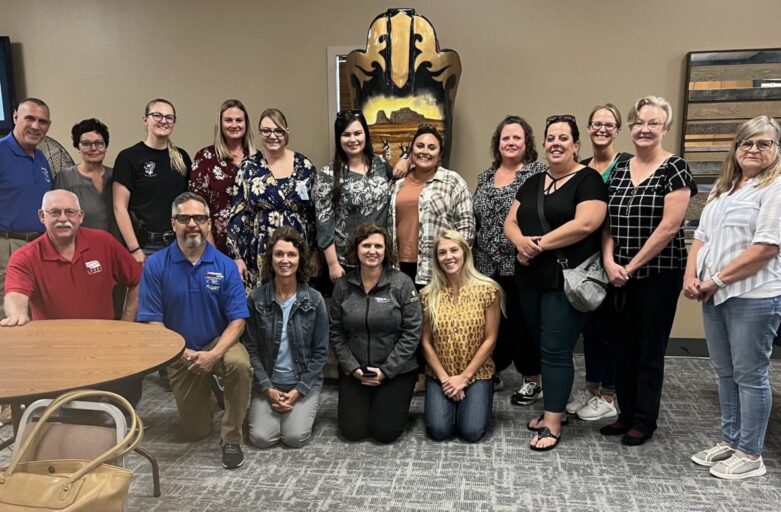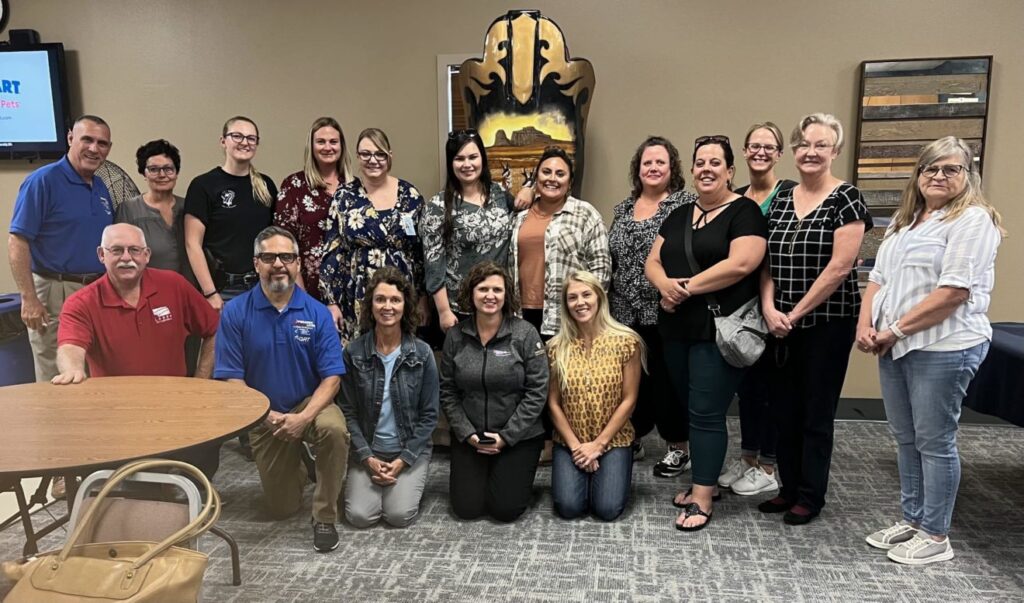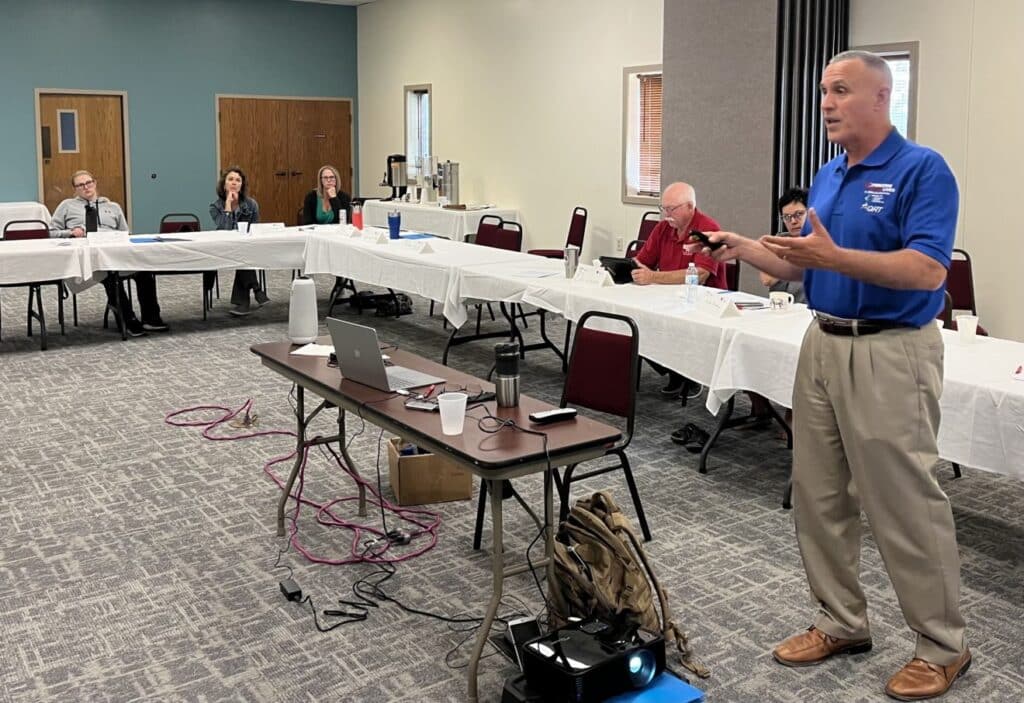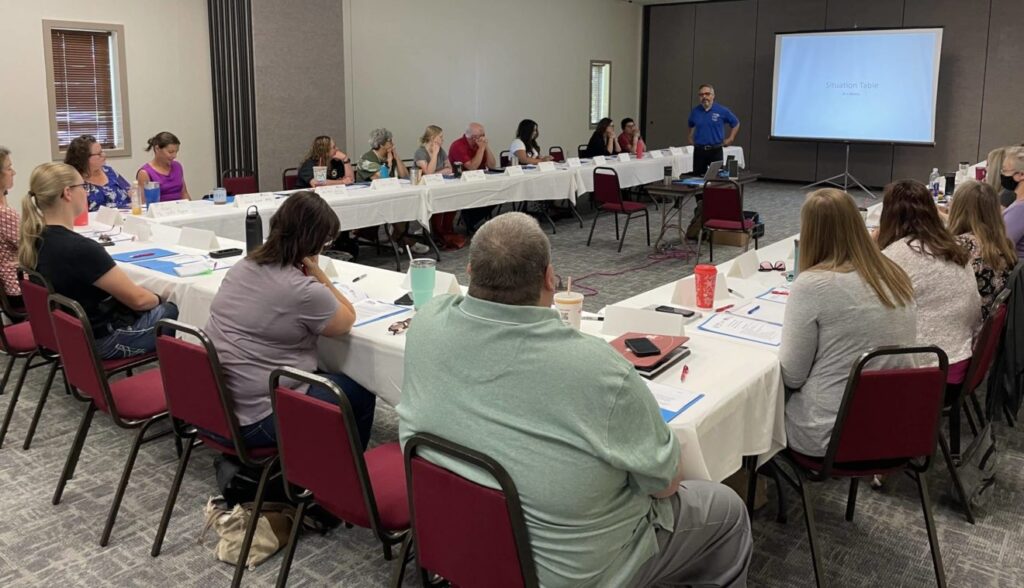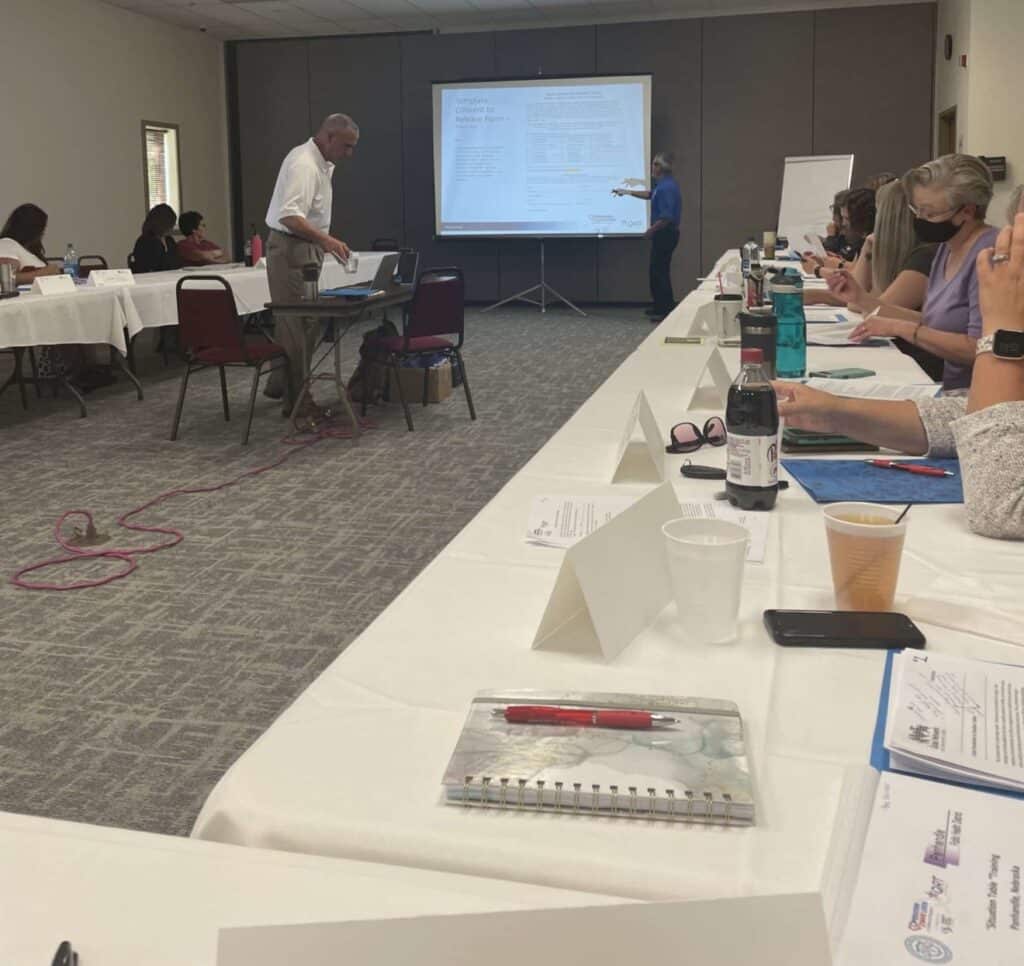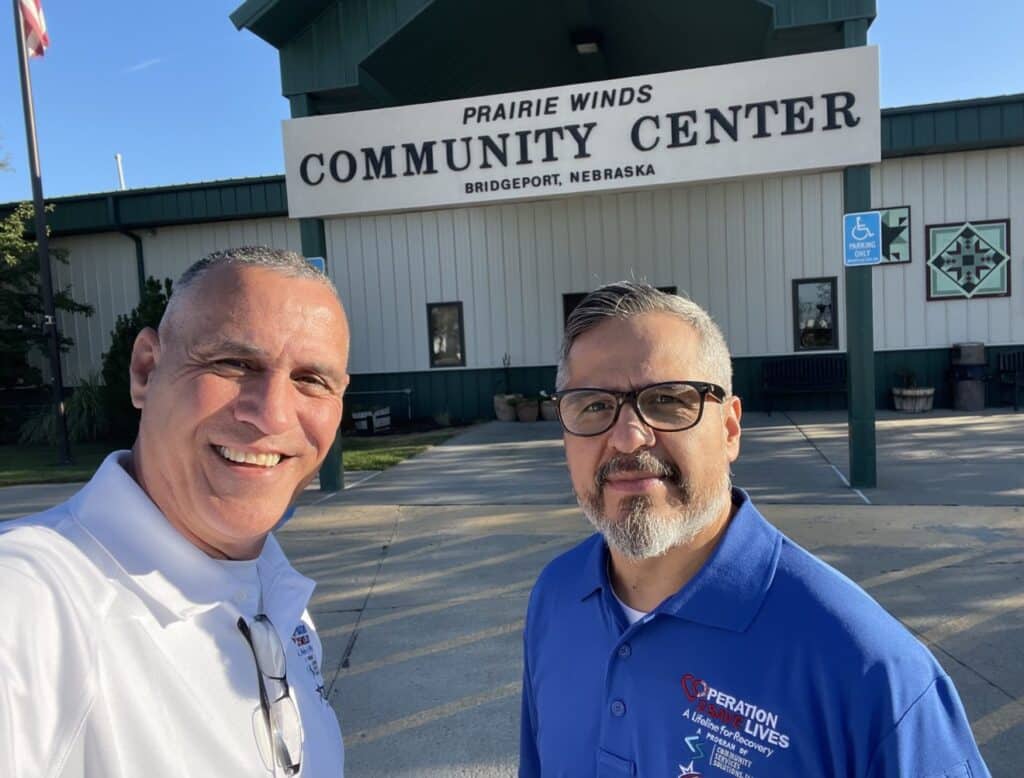BRIDGEPORT, NEB. – Operation 2 Save Lives (O2SL) & QRT National recently delivered training to agencies in the Nebraska Panhandle region on the Situation Table, a strategy that facilitates multi-agency interventions for those at risk of experiencing a crisis.
The training was coordinated by Deputy Director of Health Promotions and Preparedness Tabi Prochazka and Community Health Educator Emily Timm of the Panhandle Public Health District. The two-day training took place from Aug. 25-26 at the Prairie Winds Community Center in Bridgeport and was delivered by instructors from O2SL & QRT National.
The training focused on preparing the attending agencies with the skills and lessons necessary to form a Situation Table. During the training, attendees learned about the Situation Table, how to determine Acutely Elevated Risk, and completed a community mapping exercise and mock scenarios.
A Situation Table is a unique, risk-based rapid triage model that brings together multiple human service providers to address situations where individuals and/or families are facing a specific threshold of Acutely Elevated Risk.
Through the model, an individual or family at Acutely Elevated Risk would be referred to the Situation Table for consideration of intervention before a crisis occurs. The Table participants will collaborate and discuss the identified risk factors and possible services. Upon reaching a consensus, the Table would identify a team of agencies to attempt to locate the individual or family and connect them to services.
Situation Tables are comprised of representatives from public safety agencies, public health agencies, and service providers in participating communities. Approximately 28 participants, from 22 agencies representing many of the local service providers in the panhandle region, attended the training.
At the conclusion of the two-day training, participants were asked to describe their experience or how they felt moving forward. They shared that the training was inspiring and energizing, provided a structured approach, allowed them to form relationships, was focused on solutions and serving families, and could be an example for the state.
“We were pleased to bring this training to Nebraska and to the 22 participating agencies, and we are excited to continue supporting the region as they work to implement Situation Tables for their communities,” said Michael Botieri, O2SL & QRT National Vice President of Business Development. “We thank the Panhandle Public Health District, Deputy Director Prochazka, Community Health Educator Timm, and the Prairie Winds Community Center for coordinating the training and hosting our instructors and attendees.”
The HUB Situation Table model was developed by Global Network for Community Safety (Global Network), a Canadian-based firm that focuses on innovations to improve community safety and wellbeing across Canada and in the U.S. Through the O2SL and QRT National – Global Network partnership, the organizations work cross-border to collectively provide multi-agency community responses to address issues of marginalization, and for pre-crisis identification and crisis interventions, while creating pathways to care and support. Their combined expertise and suite of services – based on internationally recognized best past practices – help provide communities with tailored responses to meet their current needs, and the ability to rapidly adjust to an evolving landscape of risk factors including those around substance misuse disorders, mental health disorders, and related social health issues.
###

